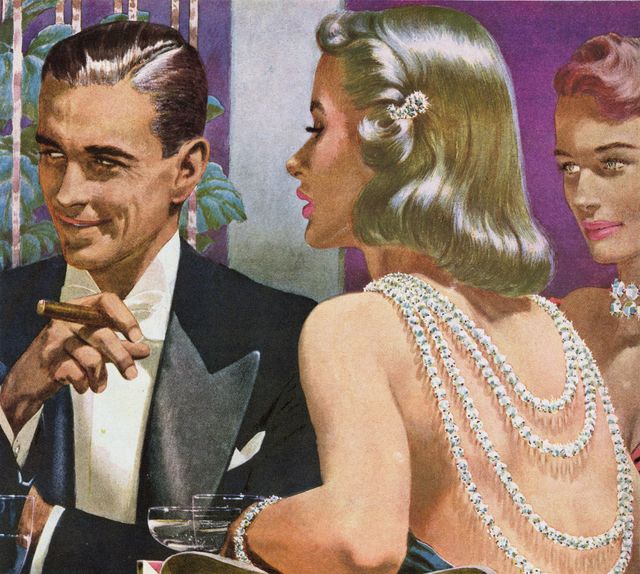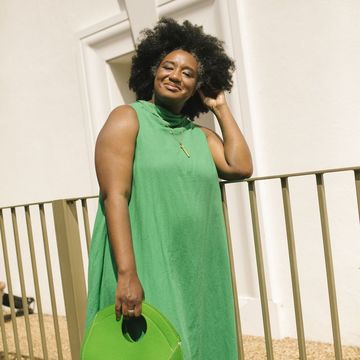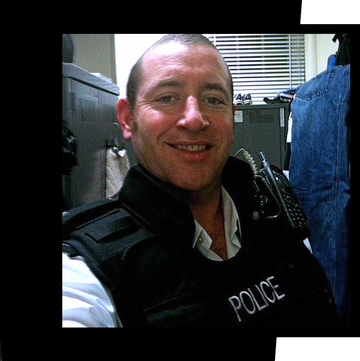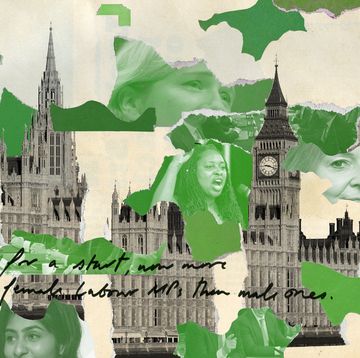The idea of binary gender divisions has been a hotly debated topic for a relatively long time.
It's become more prevalent in magazine journalism in the last few years, as we've taken our penchant for androgyny to a new place by finally accepting transgender and sexually ambiguous models and cover stars into the mainstream of our industry.
The argument for doing away with binary gender divisions has recently been given more weight, though, as we've discovered that, scientifically, there is no such thing as a 'male' or a 'female' brain.
A series of 1400 scans has proven, more conclusively than ever before, that it is almost impossible to associate differences in brain matter with biological sex; that 'masculine' and 'feminine' traits are culturally engendered and that most people have a natural mix of both of these 'male' and 'female' characteristics present in their brains.
So, it turns out that men aren't from Mars and women aren't from Venus at all.
We're both from Earth.
Any distinguishable divergence in the way we act and react is either entirely fabricated, or is our own fault, brought about by cultural expectation and the way we raise our children.
With this in mind, we thought we'd take a look back at John Gray's influential book, to see whether, with the eyes of 2016, it holds up at all to scrutiny.
As Relationship Self-Help
As a self help book - a guidance for maintaining a relatively healthy, communicative relationship - the book maintains some currency in 2016.
Respecting and accepting differences is probably key to maintaining any kind of relationship - be that romantic, friendship, between employee and manager, or otherwise.
There's even a little truth in this sort of statement:
The book teaches patience and the importance of both space and communication, so far so good.
As A Bisection of The Sexes
But the marital counseling tidbits, the book makes grand, sweeping and sometimes crass generalisations about men and women that seem, at best, a little bit silly and at worst, ludicrous and insulting.
Here are some of the more eye-opening quotes from the book:
It gets worse the further you progress into the book, with John Gray essentially encouraging women to behave like '50s housewives to keep their relationships alive.
Funny though it is to look back at how things have changed since Gray's book was released, the fact that there is still a pervasive myth, that men and women are essentially different, is damaging.
The idea that we think at odds with each other and that men must be, as Gray asserts over and over, 'forgiven' for some of their 'male' characteristics, is exactly why we still have so many problems with 'rape culture.'
Men all over the world, even in some of the most seemingly progressive countries, are still being exculpated all too easily for sexual assault on account of the fact that men and women are different, with different points of view (for example, about what constitutes consent) and different modes of behaviour.
A woman's testimony is still, largely treated as less reliable and men so often get off in court on account of it only being the first time they've done anything of that nature, or the idea that they're otherwise an upstanding citizen, or merely on account of them being not being able to help themselves when it comes to their baser urges.
The sooner this binary narrative changes, the better.

Natasha Bird is the Former Executive Editor (Digital) of ELLE.













